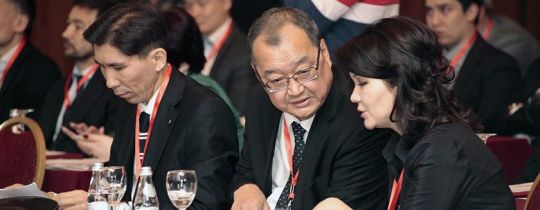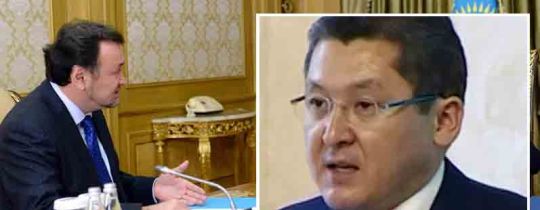Akorda’s decision to allocate 2.1 trillion tenges for the revitalization of the bank system has caused a heated discussion in the country. The reaction of the international credit rating agencies, however, has been quite positive.
Ukrainian political expert Konstantin Bondarenko’s interview about childhood syndrome of nationalism in the countries of post-Soviet space has caused wide discussions, including in the Kazakhstani segment of social networks. Some agree with his opinion that nationalism is a childhood syndrome of nation building that is better to endure during early years, while others are enraged with his interpretation of the very concept.
Experts on the Eurasian affairs are now discussing the upcoming visit of the new Uzbek president to Astana. One question in particular has aroused everyone’s curiosity. Why did Shavkat Mirziyoyev make his first official visit to Turkmenistan, why is he now coming to Kazakhstan and why, only afterwards, will he go to Russia?
Conflicts – local and global – are going to determine the present and the future of the world politics. Such a prediction was made by the writers of the Munich Security Report published before the Munich Security Conference in February. However, as oppose to the Cold War collisions, these conflicts will resemble more closely the world confrontation of the 19th – beginning of the 20th centuries.
In the previous articles on the subject of repressions, we showed how a political will of the highest Kazakh administration, coupled with present-day realities, turns lawful legal persecution into an instrument of reprisal against power opponents. It doesn’t matter whether the opponents are political or personal in nature.
Praсtice shows that all post-Soviet countries are afflicted with nationalism to some extent. But why? Is that a result of the former politics of creating a “soviet man”, i.e. an attempt at fixing former errors or some kind of mandatory syndrome that goes along with acquiring national identity?






